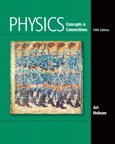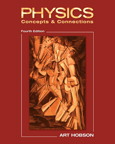You have had at least one college-level writing course. This course builds on that to enhance your writing and communication skills.
You have attained at least algebra-level math skills. This course builds on that to enhance your numerical and analytical skills.
Contributions to class material (particular laboratory)
come from Prof. Carl Helrich and past laboratory assistants.
You can find the syllabus, class notes, and other materials related to
this course on the web at:

 iPad (required) w Vernier Video Physics app and Wolfram Alpha app installed. These paid apps are available to GC-registered iPads if you go to the GC App Catalog | Purchased section. You should make sure that you have some sort of calculator--as an iPad app or otherwise.
iPad (required) w Vernier Video Physics app and Wolfram Alpha app installed. These paid apps are available to GC-registered iPads if you go to the GC App Catalog | Purchased section. You should make sure that you have some sort of calculator--as an iPad app or otherwise.
You should bring your iPads to class. But I expect them routinely to be closed unless called for.
Class - MWF 2 pm in SC 006. Tuesday 8:00-9:30 am in SC 001.
Participation: Bring paper and writing instruments
to every class. Many classes will involve some sort of individual or group
written response.
A secondary purpose of the written responses is an incentive
for class attendance. They cannot be made up if you miss class (though
they will be pro-rated if you have a valid excuse.)
In a small class, and in a lab class, attendance is kind of a big deal.
Fieldtrip - a full day field trip on a Tuesday in February.
Readings and recommended exercises: You should read
the sections from Hobson marked in square brackets (e.g. [1.2, 1.3]) in the schedule on the class home page before the class period. I may quiz you onr the assigned readings. As you read, do the "Concept Checks" that occur in many sections. Sometimes I will quiz you on the assigned reading.
A portion of each exam will be drawn directly from the concept checks, as well as the suggested conceptual exercises in Hobson, both those handed in as well
as those not handed in.
Laboratories - There is just one 1-1/2
hour lab :
Unless otherwise noted, we will meet in SC 001 (in the bottom floor, on the railroad-side of the Science building) on Tuesdays. We will also occasionally meet in SC 008.
Hand in your activity guide
to your lab assistant most weeks. They'll be progressively graded.
Lab tip #1: Write things down in pencil and bring an eraser!
Lab tip #2: Check your results and graphs with your lab assistant before dis-assemble your equipment.
Exams: Exam dates will be published on the class schedule at least
1 week ahead of time. Make up exams are not possible unless prior arrangements
are made, or you have a medical problem come up that is documented by a healthcare
provider treating you.
Studying
In Fall 2009 I asked the students who improved by more than 10% between
the first and second exam what they did the second time. Some of their responses:
Study with a friend
"I studied with a friend."
"A friend and I split up the studying. I wrote out the conceptual exercises,
another wrote out notes from each chapter."
Time spent studying
"I spent more time studying for this class."
"The play was over and I had so much more time."
"I studied about 3 hours more this time..."
Working problems
"I went through all of the odd questions [these have answers in the
back of the book] in the chapters that the test covered. This helped me work
on problem solving rather than just memorizing facts."
"I made sure I had a grasp on every sample problem."
"The most helpful thing was doing the concept review questions."
A different way of reading
"I read the book more closely than the 'broader point' reading we do in social
sciences."
"I found it helpful to read the textbook word-for-word."
[During the test] "I tried to think what you wanted us to know, not what the
question was asking".
Project: U.S. Energy Policy - Groups will research one kind of
energy source. Groups will re-shuffle and carry out a simulation of the energy
sources for the U.S. economy for the next 50 years and write up results. More
information coming!
Grading
| Participation & assigned HW |
15% |
| 1 mid-term exam |
15% |
| Final exam |
20% |
| Laboratory |
25% |
| Writing/projects |
25% |
Total grade outcomes:
A /A- > 90%
B's > 80%
C's > 70%
D's > 58%
I may adjust this scheme down a bit (e.g. 88% might end up being good
enough for an A), but I certainly won't adjust it up.
Writing
It's a widely
held assumption among post-secondary U.S. teachers that if you
are able to explain
something in your own words that this is evidence of your understanding of
concepts.
Avoid lingo. For most of the assignments in this class, you should
write as if you were explaining things to an interested friend, someone who
is generally as well educated as you are (!), but who is not necessarily a
specialist in the field you're writing about. You should avoid using lingo
that non-specialists would not understand, unless you explain it. There are,
however, a number of words that have specialized or narrower definitions in
physics than how they are used in common speech--for example 'energy' and 'power'.
You should use those words in such a way that would make sense to someone who
*does* happen to know physics.
Quote other people's words. You should protect yourself from the appearance
of plagiarism--presenting the words of someone else as if you had written them--by
enclosing anything that someone else wrote between quotation marks and acknowledging
who *did* write it.
If you're referring to several different sources, this acknowledgement
will get complicated, ranging from a short "(Joe Klein, writing on Wired.com)"
to full-blown numbered footnotes and a bibliography. If you're
reviewing one article, it's still necessary to quote anything the author wrote,
but you don't need to say each time who you're quoting because it's obvious
from context.
But even if you rigorously quote everything that someone else wrote, it is
still almost always bad style to use long quotations:
- The article you're writing about was not written for the particular
audience you are writing for. You can usually summarize the key ideas of
a passage in fewer, and more appropriate words than the original.
- It's much easier to just copy and paste someone
else's words rather than going to the trouble of understanding them enough
to be able to re-state the ideas in your own words. Extended quotations
give your audience (including your professor!) the impression that you might
not quite understand the passage yourself.
* Dean's Office statement on plagiarism
Papers you submit in this course will be checked for plagiarized material copied from the web, other student papers, and selected on-line databases. Cases of plagiarism are reported to the Associate Dean. Penalties for plagiarism are listed in the college catalog and range from redoing the assignment to dismissal from the college.
Disability accomodations
Goshen College wants to help all students be as academically successful as
possible. If you have a disability and require accommodations, please contact
the instructor or Director of the Academic Resource and Writing Center, Lois
Martin, early in the semester so that your learning needs may be appropriately
met. In order to receive accommodations, documentation concerning your disability
must be on file with the Academic Resource and Writing Center, GL113, x7576,
lmartin@goshen.edu. All information will be held in the strictest confidence.
The Academic Resource and Writing Center offers tutoring
and writing assistance for all students. For further information please see www.goshen.edu/studentlife/arwc/.
Image credits
NASA, NASA Suomi/NPP mission, sunflowers, GC Theater production of Urinetown
 Physics courses have a reputation for being 'hard'. Perhaps two factors that
go into this are...
Physics courses have a reputation for being 'hard'. Perhaps two factors that
go into this are...
 Textbook (1 choice of 2 required): Art Hobson, Physics: Concepts and Connections. You may purchase (or rent) either the 4th (2005) or 5th (2009) edition... an electronic (available from cafescribe) or paper copy is allowed. Some versions indicate that they are sold with a "code" (to access online homework sites). Such a code is not required.
Textbook (1 choice of 2 required): Art Hobson, Physics: Concepts and Connections. You may purchase (or rent) either the 4th (2005) or 5th (2009) edition... an electronic (available from cafescribe) or paper copy is allowed. Some versions indicate that they are sold with a "code" (to access online homework sites). Such a code is not required. Writing handbook (1 choice of several required): Diana Hacker, A Pocket Style Manual 4th edition (2004) or newer (I'll be referring to 5th edition--2009).
Writing handbook (1 choice of several required): Diana Hacker, A Pocket Style Manual 4th edition (2004) or newer (I'll be referring to 5th edition--2009).

 iPad (required) w Vernier Video Physics app and Wolfram Alpha app installed. These paid apps are available to GC-registered iPads if you go to the GC App Catalog | Purchased section. You should make sure that you have some sort of calculator--as an iPad app or otherwise.
iPad (required) w Vernier Video Physics app and Wolfram Alpha app installed. These paid apps are available to GC-registered iPads if you go to the GC App Catalog | Purchased section. You should make sure that you have some sort of calculator--as an iPad app or otherwise.